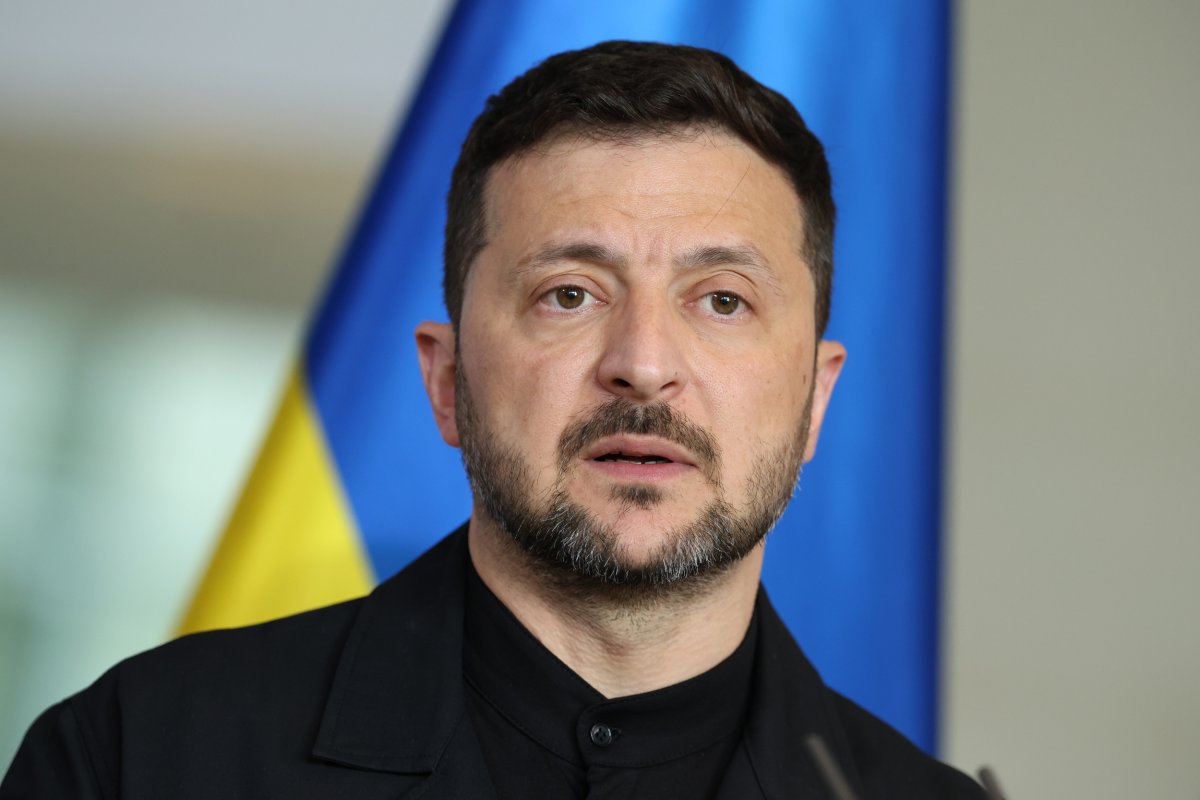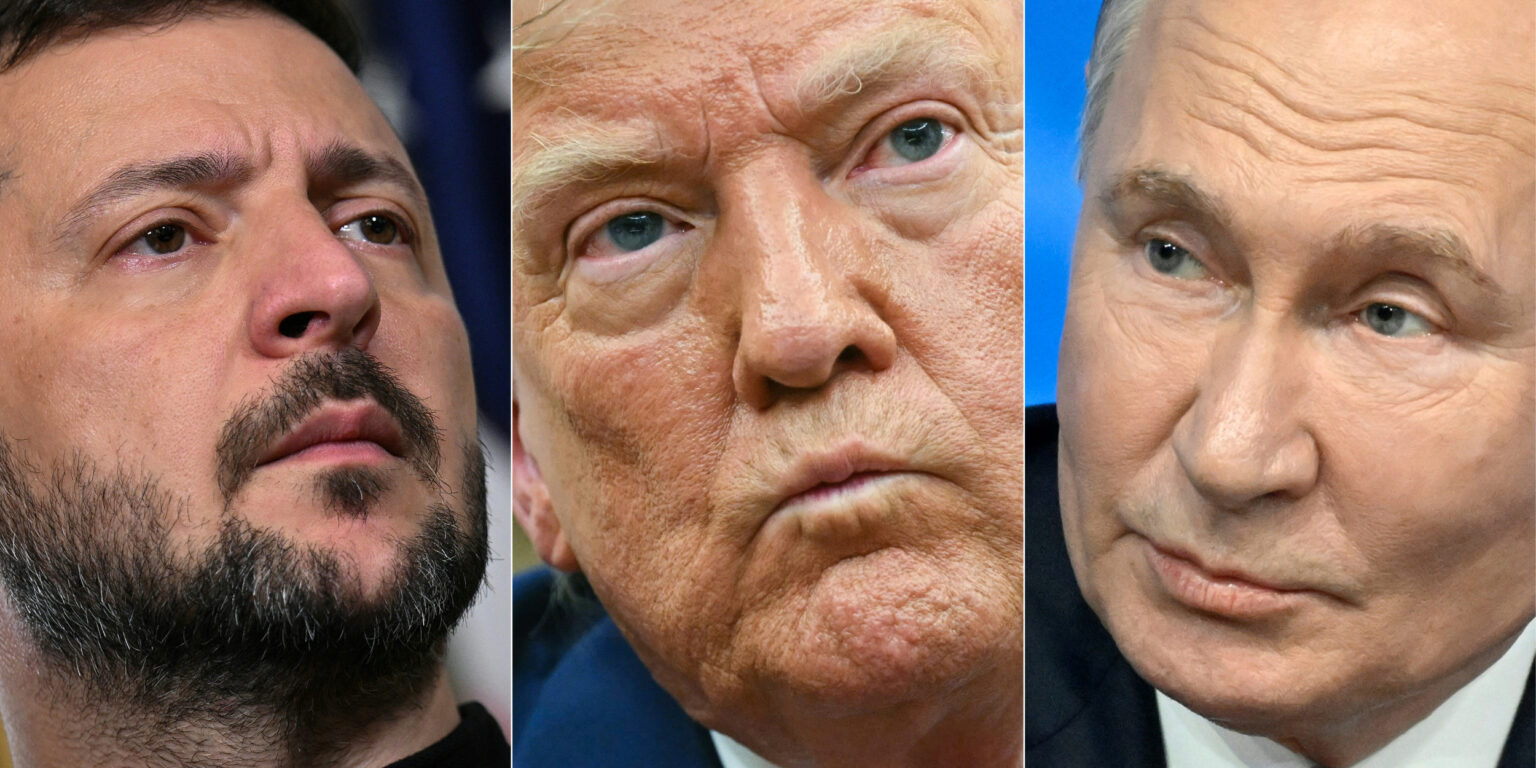Recent remarks by U.S. President Donald Trump criticizing Russian President Vladimir Putin have potentially shifted the diplomatic landscape, possibly giving Ukrainian President Volodymyr Zelensky an advantage in ongoing negotiations to end the conflict. Trump’s increasingly pointed comments about Putin, contrasted with Zelensky’s more straightforward approach, suggest a nuanced diplomatic dynamic at play.
When questioned about which leader has caused him more frustration, Zelensky, according to Ukrainian media, responded: “I might say harsh things, but I speak honestly,” contrasting himself with Putin, who “sometimes utters very kind words, yet they are deceptive.” This statement underscores Zelensky’s attempt to position himself as a candid interlocutor, possibly leveraging U.S. sentiment to bolster Ukraine’s diplomatic standing.
During a week in which Trump labeled Putin “reckless” and accused him of “playing with fire,” Ukrainian advisors told Newsweek that Zelensky might be capitalizing on the U.S. president’s visible frustration with Moscow to strengthen Kyiv’s negotiating position. Conversely, some experts argue that Trump’s comments do not necessarily indicate Zelensky’s current favorability but rather reflect a broader U.S. strategic stance that is increasingly wary of Putin’s actions. Newsweek has reached out to the White House for further clarification.
Significance of the Diplomatic Shift
Following Russia’s rejection of the U.S. proposal for a 30-day ceasefire-an initiative supported by Kyiv-Trump publicly questioned whether Moscow’s leadership is genuinely committed to peace, suggesting that Putin might be deceiving him. Zelensky’s remarks, emphasizing Trump’s preference for direct communication over Putin’s delaying tactics, appear to be an effort to highlight Kyiv’s diplomatic leverage amid stalled negotiations.
Current State of U.S.-Ukraine-Russia Relations
The prospect of renewed U.S. support for Ukraine has been a source of concern among Kyiv and its allies, especially with Trump’s return to the White House. Historically, Trump’s administration had been somewhat unpredictable in its approach to Ukraine, with moments of strong backing and periods of hesitation. Notably, Trump previously accused Zelensky of risking “World War III” during a fiery exchange in late February, raising fears of diminished U.S. commitment.
However, recent developments, including a minerals trade agreement and a high-profile discussion at the Vatican during Pope Francis’ funeral, suggest that tensions between Trump and Zelensky have eased. These diplomatic engagements signal a potential thaw, although the underlying dynamics remain complex.

Sean Gallup/Getty Photos
Despite ongoing jabs at Zelensky, Trump notably directed a sharp critique at Putin following recent Russian missile and drone strikes on Kyiv and other Ukrainian regions, describing the Russian leader as “reckless.” Trump further asserted that, without U.S. leadership, “many terrible things would have already happened to Russia,” a statement that drew mockery from Russian state media.
Meanwhile, Zelensky, speaking to reporters, emphasized that despite a sometimes strained relationship with Trump, the White House remains more concerned with Putin’s actions than with Kyiv’s diplomatic efforts. He remarked, “You are truly alone when dealing with the Russian leader,” highlighting the ongoing geopolitical challenge.
Viktor Kovalenko, a former Ukrainian military officer and analyst, suggested that Zelensky might be attempting to exploit Trump’s frustration with Putin to enhance Ukraine’s negotiating position. He posits that Kyiv could also aim to portray Zelensky as a shrewd leader who has managed to influence U.S. politics, especially as Kyiv seeks to garner bipartisan support amid a divided American political landscape.
However, Kovalenko cautions that a shared frustration with Putin does not necessarily translate into unwavering U.S. support for Zelensky, noting that the Biden administration maintains a cautious diplomatic distance from both Kyiv and Moscow.
Mark Temnycky, a senior fellow at the Atlantic Council, pointed out that Trump’s irritation with Putin coincided with Zelensky’s diplomatic outreach to U.S. officials, which could have improved Kyiv’s prospects for a peace agreement. He also noted that recent Russian missile strikes, condemned by Trump, might prompt the U.S. to deepen cooperation with Ukraine.
Peter Tough of the Hudson Institute observed that while Putin’s relationship with Trump has deteriorated, Zelensky’s standing with the U.S. president remains uncertain. He emphasized that the White House’s outlook on a negotiated settlement has become more pessimistic, largely due to Moscow’s intransigence.
Expert Opinions and Political Reactions
Volodymyr Zelensky: “I may say unpleasant things, but I speak the truth.”
Viktor Kovalenko: “Zelensky will try to leverage Trump’s growing frustration with Putin to strengthen Ukraine’s position before the next round of negotiations, and to showcase himself domestically as a leader who ‘played Trump like a fiddle.’
Peter Tough: “While Zelensky might not be in Trump’s immediate favor, Putin’s standing with the president is increasingly diminished. The White House is less optimistic about reaching a diplomatic solution, mainly because of Putin’s stubbornness.”
Kremlin spokesperson Dmitry Peskov: “We need to wait for a response from Ukraine. Only then can we consider moving forward.”
Looking Ahead: The Path to Peace
Trump has set a two-week deadline for Putin to seriously consider a ceasefire proposal before the U.S. imposes additional sanctions and measures. It remains uncertain whether this ultimatum will influence Moscow’s actions. Meanwhile, Russia’s Foreign Minister Sergey Lavrov has reportedly presented the U.S. Secretary of State Marco Rubio with “proposals” for the next phase of peace negotiations.
Earlier, Moscow proposed talks with Ukraine in Istanbul scheduled for June 2, following an initial attempt on May 16 that Putin explicitly rejected. Analysts like Tough believe that Trump is hopeful for a diplomatic resolution in the coming months, awaiting the Russian offer that Putin has promised during recent communications.

